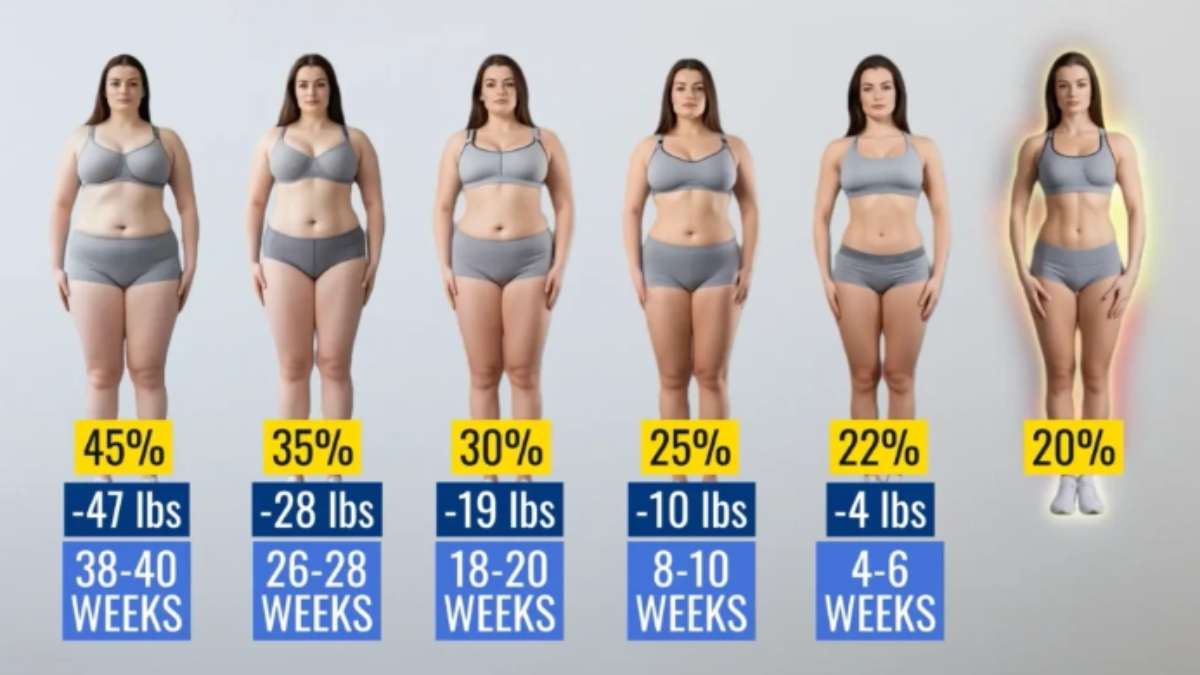Introduction
Have you ever wondered what does 4 lbs of fat look like? It can be hard to visualize just how much fat your body carries or loses when you see the numbers on a scale. Understanding the volume and appearance of 4 pounds of fat can help you better track your health and weight loss progress. In this article, you will get a clear picture of what 4 lbs of fat looks like, how it compares to muscle, and why knowing this matters in your fitness journey.
What Does 4 lbs of Fat Look Like in Real Life
To put it simply, 4 lbs of fat takes up a significant amount of space in your body. Unlike muscle, fat is less dense, so 4 pounds of fat looks larger and bulkier. Imagine holding a small melon or a large grapefruit—that’s about the size 4 lbs of fat would occupy. This visual helps you understand how losing or gaining this amount can affect your overall body shape.
Fat vs Muscle: Why Size Matters
You might hear people say fat weighs less than muscle, but the truth is muscle is denser. This means 4 lbs of muscle is much smaller in volume compared to 4 lbs of fat. So if you’re building muscle while losing fat, you might notice changes in your body shape even if the scale doesn’t move much. This is why pictures or body measurements can be better indicators of progress than weight alone.
How Does 4 lbs of Fat Affect Your Body Composition?
Losing 4 lbs of fat can reduce your body fat percentage noticeably, especially if you are lighter to begin with. This can lead to improved muscle definition, better health markers, and increased confidence. It also impacts how your clothes fit and your overall energy levels.
Common Misconceptions About Fat Loss
Many people think losing weight means losing fat, but it’s important to remember your body also loses water and sometimes muscle mass. Understanding what 4 lbs of fat looks like helps you focus on real fat loss rather than just seeing a drop on the scale. It encourages sustainable and healthy weight management.
Practical Ways to Visualize Fat Loss
To get a better idea of fat loss, some people use fat calipers or body scans. You can also compare photos taken over weeks or months to see changes. Remember, fat distribution varies for everyone, so 4 lbs of fat lost may show differently depending on where it comes from on your body.
How to Lose 4 lbs of Fat Safely
Losing 4 lbs of fat involves a combination of balanced diet, regular exercise, and good sleep. Cutting about 500 calories a day can help you lose around 1 lb per week, so 4 lbs can be lost in about a month safely. Avoid fad diets or extreme measures that cause muscle loss or rebound weight gain.
Why Knowing What 4 lbs of Fat Looks Like Matters
Understanding what 4 lbs of fat looks like keeps you motivated and realistic. It helps you set clear, achievable goals and appreciate the changes happening in your body. This knowledge can improve your mental health and help you develop a positive body image.
Conclusion
Now you know what does 4 lbs of fat look like and why it matters. Visualizing fat in your body helps you track true fat loss and body composition changes beyond the numbers on the scale. Remember, healthy weight loss is gradual and sustainable. Use this information to guide your fitness journey with confidence and clarity.
FAQ
What does 4 lbs of fat look like in terms of size?
Four pounds of fat roughly looks like a large grapefruit or a small melon. It takes up more space than muscle because fat is less dense.
Is 4 lbs of fat a lot to lose?
Losing 4 lbs of fat is a healthy and realistic goal for many people. It can lead to noticeable changes in body shape and health.
How can I tell if I’m losing fat or muscle?
Tracking body measurements, photos, and using body fat calipers can help differentiate fat loss from muscle loss.
How long does it take to lose 4 lbs of fat?
With a steady calorie deficit of 500 calories per day, it usually takes about 4 weeks to lose 4 lbs of fat safely.
Can 4 lbs of fat loss affect my clothes size?
Yes, losing 4 lbs of fat often results in clothes fitting more comfortably and improved muscle definition.
Why does muscle weigh more than fat?
Muscle is denser than fat, meaning it takes up less space but weighs more per volume.
Should I focus on fat loss or weight loss?
Focusing on fat loss rather than overall weight loss is healthier because it preserves muscle and improves body composition.
How can I measure my fat loss accurately?
Using body fat calipers, bioelectrical impedance scales, or professional body scans can give more accurate fat loss measurements.
